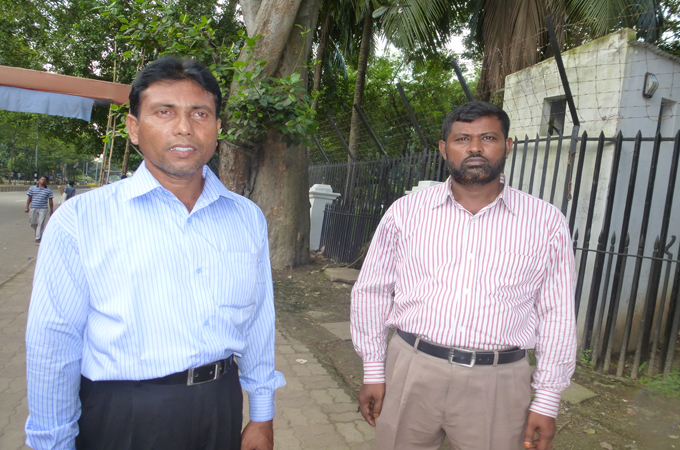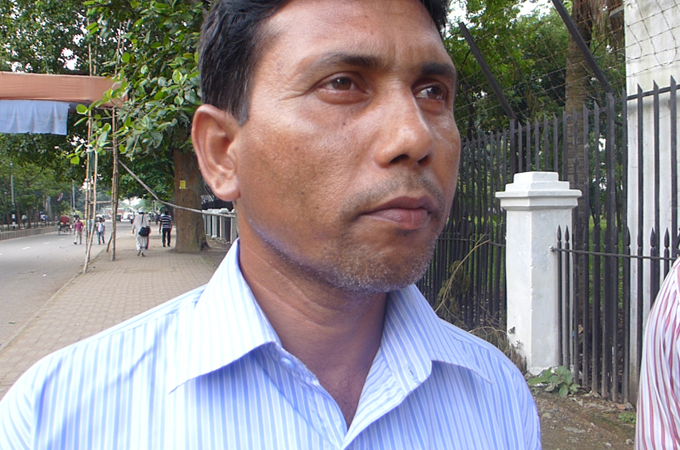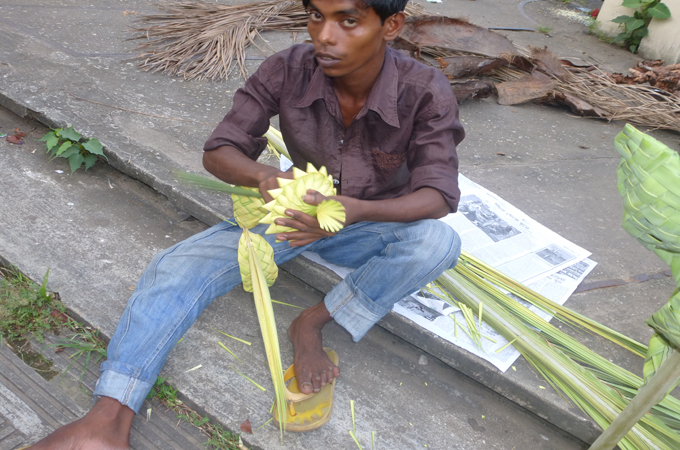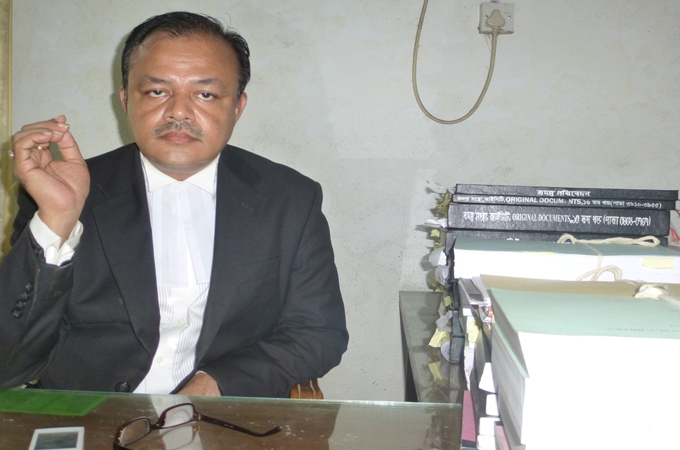Bangladeshis react to war crimes sentence
Jamaat’s Molla faces the death penalty for role in 1971 war, igniting widespread protests, as well as praise.

Dhaka, Bangladesh – Supporters of Bangladesh’s largest Islamic party have staged demonstrations across the country to protest the death sentence given to one its senior leaders for war crimes.
Wednesday’s unrest came a day after the country’s Supreme Court sentenced Abdul Quader Molla of the Jamaat-e-Islami party to hang for committing crimes against humanity during the nation’s 1971 independence war against Pakistan.
Al Jazeera spoke to Bangladeshis from both sides of the debate about their views on the verdict.
Anti-verdict
| Barrister Abdur Razzak, defence lawyer and leader of Jamayate Islami Bangladesh |
The Supreme Court verdict is wrong. We are aggrieved, surprised and we think the verdict is against justice. My client (Molla) will file a review petition within 30 days after getting the full text of the apex court judgement. According to the council statements, the death sentence of Molla will not be executed until the review petition is disposed.
It is unprecedented in the history of Bangladesh that the Supreme Court has awarded death penalty to Molla. According to Supreme Court rule, a convict can file a review petition against any court verdict.
| Khandakar Mahbub uddin Ahmed, defence lawer and senior BNP official |
I want to say that after the conclusion of the trial, the government allowed the amendment. It’s a trial court, its verdict should not be changed. This is the first time in South Asian judicial history that a trial court sentence has been enhanced by a Supreme Court.
We are told that this tribunal does not conform to international standards. Justice has been denied. As I have clearly stated, the verdict ought to have stayed as a life sentence – a death sentence is entirely unjustified and illegal.
But we must also moderate ourselves. When some peoples shout ”we want hanging, we want hanging” …it’s a reflection of blind rage.
| Mohammad Jamal Uddin, school teacher |
 |
| Mohammad Jamal Uddi (right) [Sumi Khan/Al Jazeera] |
It’s very clear, the verdict is under pressure from the people’s movement. As a result, the verdict is preposterous. After the verdict of international crime tribunal, why be compelled to include an amendment?
The protests prompted parliament to amend a law which allowed the state to appeal against any verdict reached by the war crimes tribunal.
This meant that alongside Mullah’s appeal against his verdict, the Supreme Court also heard an appeal from the government that wanted a tougher sentence handed down. It sets a bad precedent for our current governement.
| Israfil Hossain, school teacher |
 |
| Isfrail Hossain [Sumi Khan/Al Jazeera] |
It is difficult to say, but the verdict of Supreme court is not acceptable to me. I think under tremendous pressure of people, the government forced an amendment to the law. The government should not have bent to mob pressure.
Pro-verdict
| Mohammad Faruq Islam, founder of Super Bairkadi girls Dakhil Madrasa |
I don’t think any legal process is applicable for these types of criminals. They raped, killed and acted totally inhumane, which is totally forbidden in Islam. Legal processes are very time consuming, I think. So they should be hanged openly in public in the capital city of Dhaka, which will be exemplary under our Islamic rules.
| Nayeem Yaar Khan, lecturer in Udayan school & college, Dhaka |
 |
| Nayeem Yaar Khan [Sumi Khan/Al Jazeera] |
The rapist and killer should be hanged. I’m happy with the verdict. Lots of people were raped and killed by Quader Molla. His heinous crimes titled him Molla ‘Butcher’ in 1971. We cannot forget the things he has done.
| Golam Afif Tipu, chief prosecuter |
The verdict was not a result from the pressure of people or a movement. The verdict was strictly allowed through the law.
By no stretch of the imagination, such a situation can be turned or deemed to be the product of pressure from secularism. Rather, the law gives clear and unambiguous language. The conclusion to give the desired verdict of a death sentence in place of an erroneous appeal is adequate.
| Saiful Islam, prosecutor |
 |
| Prosecuter Saiful Islam [Sumi Khan/Al Jazeera] |
The judgement and order delivered by the tribunal, in the case of chief prosecutor vs Abdul Quader Molla, proved and affirmed all the charges without a reasonable doubt. But in the part of the conviction without any adequate explanation was the demand for the convicted be sentenced for life imprisonment. The International Critminial Act of 1973 states that the convicted be setenced to the highest punishment – capital punishment.